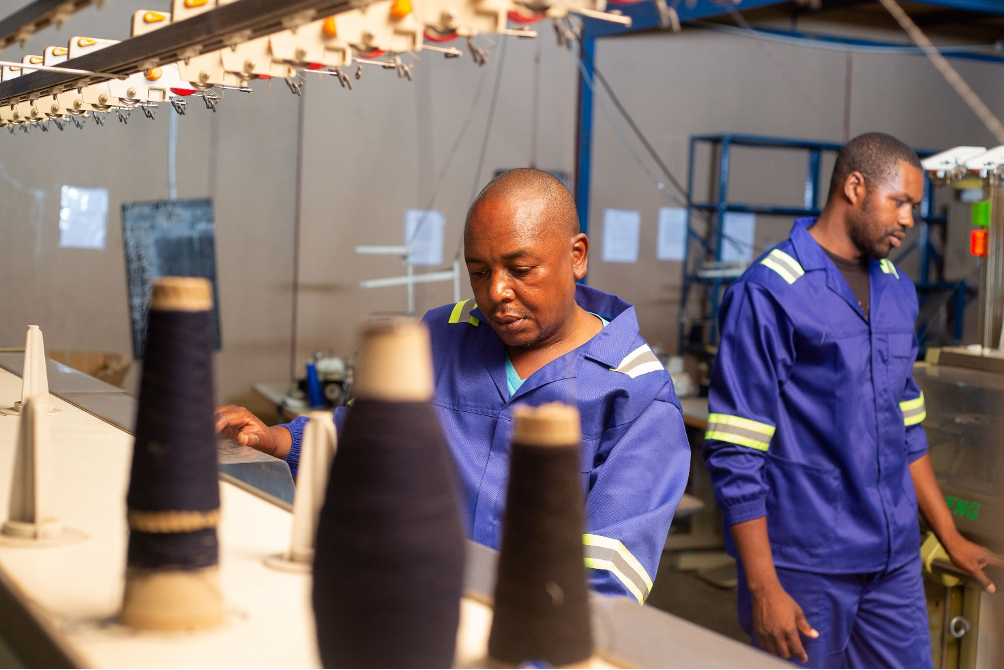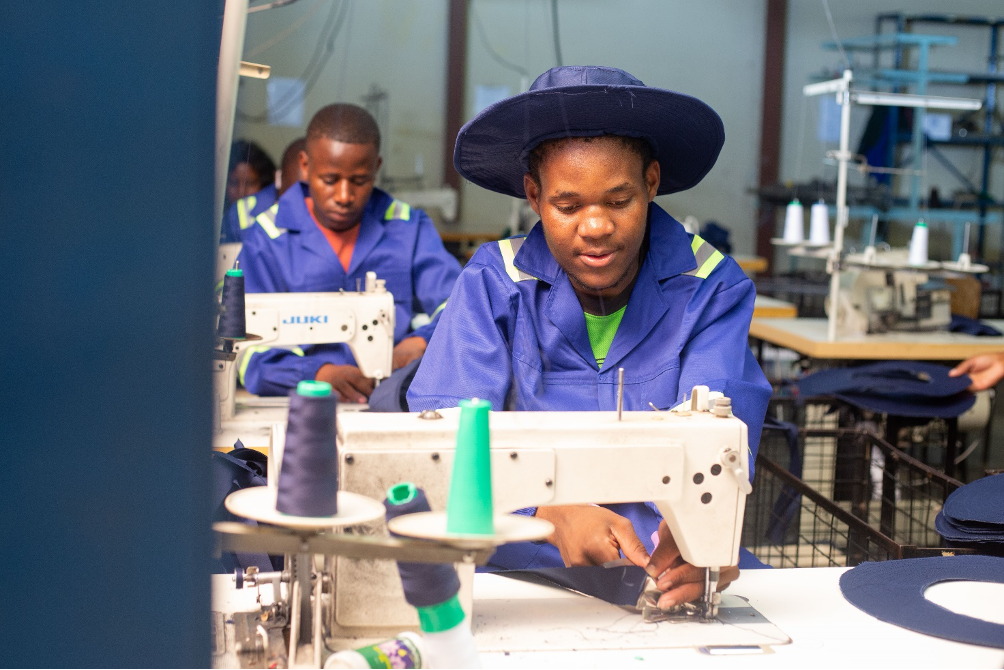
Georgina Chirume is a passionate entrepreneur from Zimbabwe. She is the Managing Director of Lusama Fashion Enterprises, one of the leading knitwear and clothing manufacturers specialized in the production of corporate jerseys, school jerseys, corporate wear, workwear, school uniforms and protective clothing including Covid19 PPE.
Through her business, not only does Georgina contribute to the growth of Zimbabwean Fashion and Textile industry, but she also plays an active role in providing both employment and entrepreneurial training to young people and women, transforming the life of the people of her community. In addition to this, she fights hard to protect the environment by using environmentally friendly manufacturing, which limits pollution and facilitates recycling of waste.

She decided to participate to the Global MBA in Impact Entrepreneurship in order to develop the business skills necessary to scale her already existing business. The abilities, tools, solutions and strategies acquired throughout the program allowed Georgina to expand her business and create new profitable projects.
“The Global MBA in Impact Entrepreneurship has imparted much to me and my organization. I started the program with only one business and thanks to our coach, mentors, lecturers and facilitators I now have an additional business project, which is showing great potential. It’s a practical program and I can confidently say that I now enjoy social entrepreneurship. I am knowledgeable with brilliant ideas and strategies that are positively impacting my country Zimbabwe.”
But let’s learn more about her business.

1. How was your Business Idea born?
In 2001 I noticed that corporates and schools were starting to appreciate the importance of branded corporate and school wear. And so, I jumped to exploit this opportunity and started branding different clothes with the manual embroidery machine that I bought. As time passed by, I came to the point where I had to forego large orders, because of production capacity constraints. I therefore acquired automated embroidery machines.
Moving from labor-intensive production to capital-intensive production gave me competitive advantages of increased production capacity, enhanced production efficiency and product innovation. Today Lusama Fashions is experiencing repeated sales from our customers that have been satisfied with our brand.
2. How can your business improve the life of the beneficiaries of your activities?
First off, we protect the environment by adopting a sustainable approach: as we use electric and computerized machines, our manufacturing process doesn’t result in environmental pollution; moreover, we manage our waste through re-cycling and dispose it in line with local regulations.
In addition to this, we care for our employees and support them in different ways: for instance, offcuts are donated to women who produce products for sale. We also provide job opportunities for unemployed people. In this way, our business contributes to a better national income in the form of higher government spending and higher tax revenue, which can be used to invest in struggling sectors and human capital.

3. In your opinion, what are the main qualities an entrepreneur should have?
I believe that self-discipline is one of the most essential characteristics of a successful entrepreneur. If an entrepreneur is able to accomplish essential tasks (whether he or she is feeling up to it or not), then he will be able to achieve higher success. Self-discipline basically means to master the inner self and inner emotions to generate a sense of responsibility of getting the job done, which fosters self-direction.
4. Is there a person you are inspired by, i.e., an entrepreneur or a particular mentor?
I am inspired by Alyssa Nobriga who said: ‘My willingness to take full responsibility for my wins and losses in my business and life helps me use everything for my growth, rather than getting stuck with blaming people or situations for any perceived setbacks. It’s an empowering way to live and work and encourages me to keep taking risks outside my comfort zone.’
Key take away from this is, taking responsibility can be hard. She is right when she says it helps her grow, in all aspects of her life. It can build trust with the people in your life, and help you learn from your mistakes, both essential factors for personal growth.

5. What would you suggest to a new-born entrepreneur?
Manage risks to become a successful entrepreneur. As a successful entrepreneur, one needs to learn how to identify which risks to take, but also when to take these risks. Be sure to recognize where you are in the entrepreneurial cycle when calculating which risks to take.
6. Could you tell us a particular satisfactory moment you had in your entrepreneurial activity?
Managing change brought by Covid19 Environment. I switched factory operations from traditional knitting and clothing to joining the fight against Covid19 by producing PPE for frontline and essential staff. I did this by re-deploying resources i.e., machinery, employees and capital to production of PPE. I developed new products such as masks and hospital protective clothing.
7. Could you tell us how our MBA has helped you and your business?
The MBA gives an academic and business acceleration experience at one goal. It helped me to develop the business skills necessary to scale up my business. It also helped me to develop a personal network of mentors.

